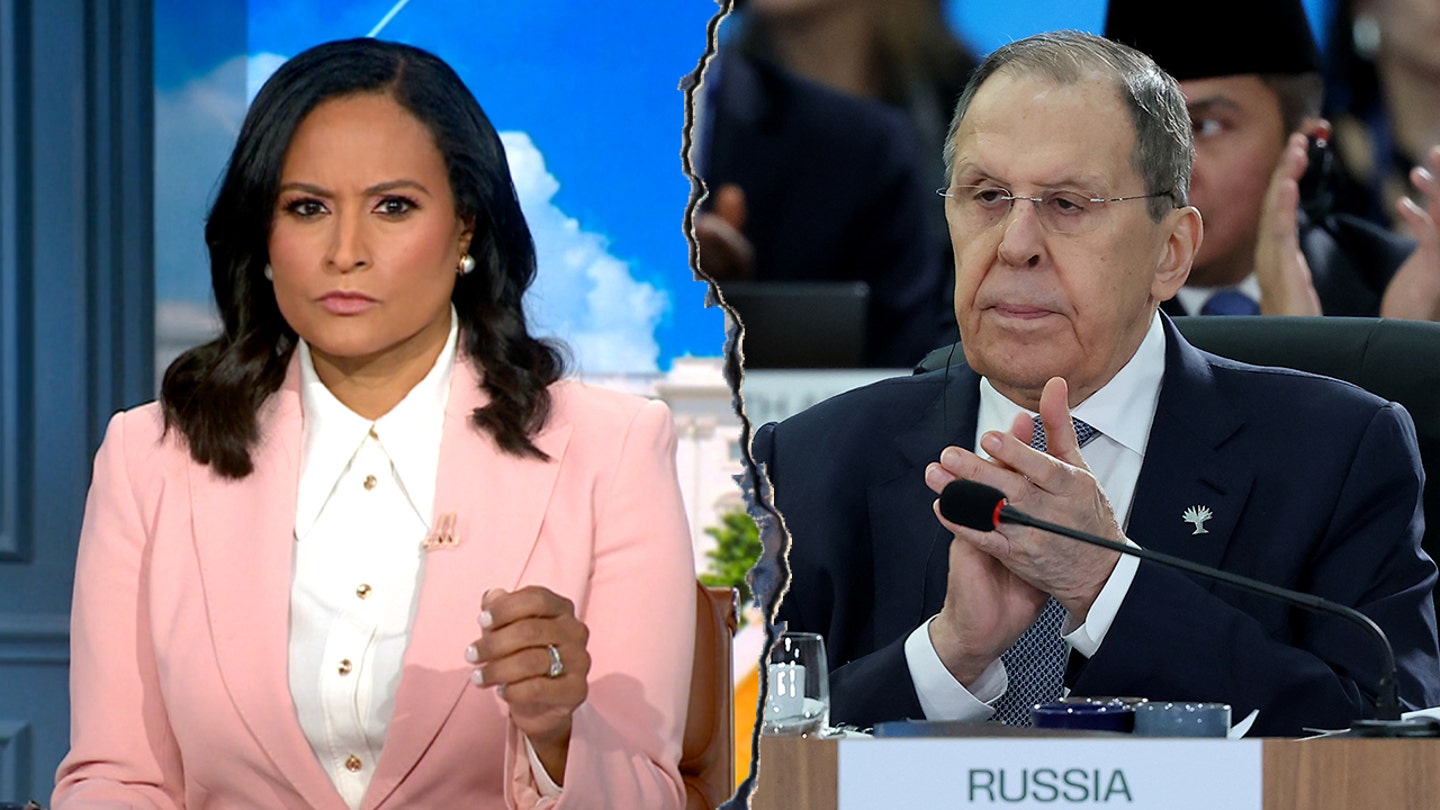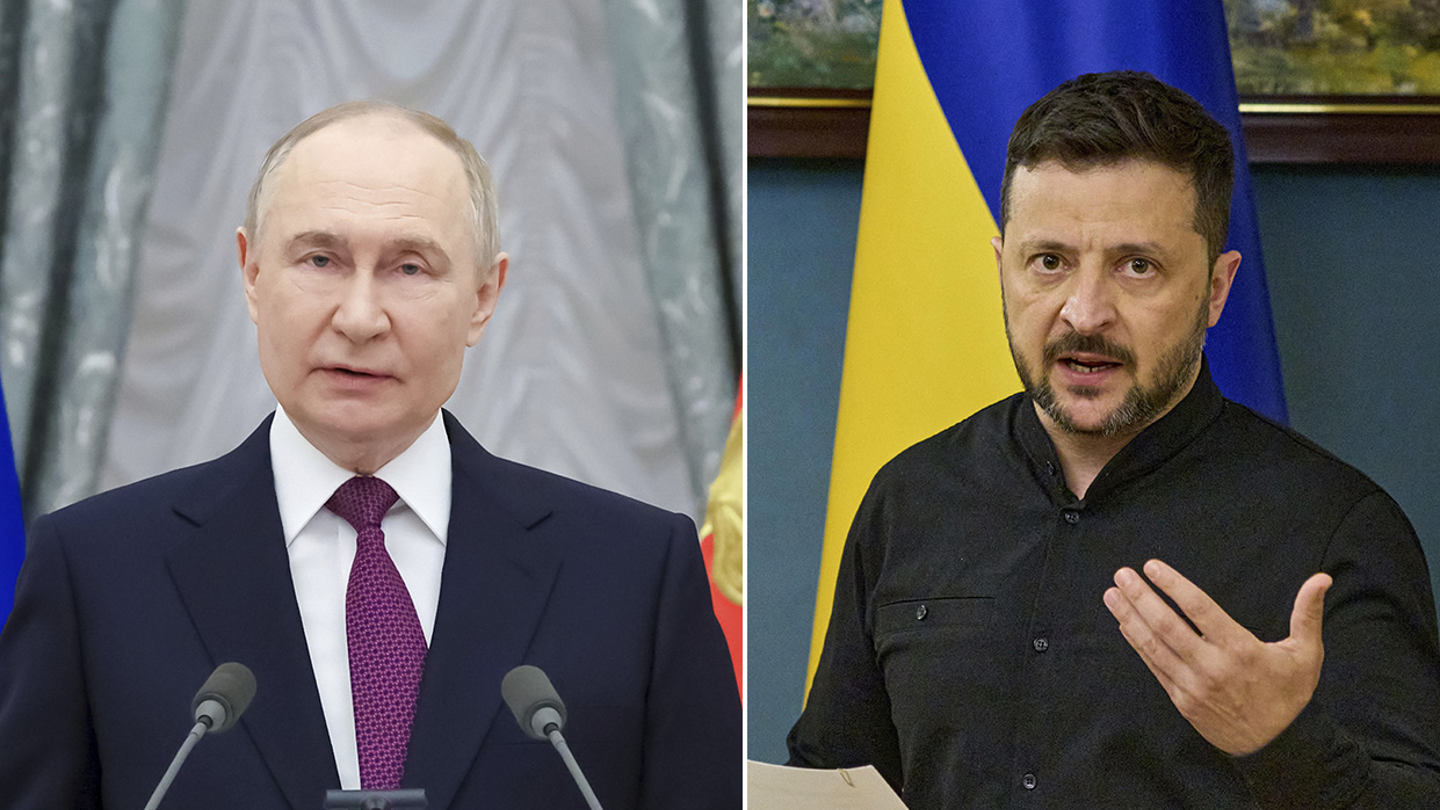
10 key takeaways from DOJ’s release of Ghislaine Maxwell's Epstein interviews
Entities mentioned:
- Ghislaine Maxwell: Self-preservation, Loyalty, Influence
- Jeffrey Epstein: Power, Control, Greed
- Department of Justice: Justice, Duty, Transparency
- Donald Trump: Power, Influence, Self-preservation
- Bill Clinton: Influence, Legacy, Self-preservation
- Prince Andrew: Self-preservation, Pride, Influence
- Virginia Giuffre: Justice, Recognition, Moral outrage
Article Assessment:
Credibility Score: 65/100
Bias Rating: 55/100 (Center)
Sentiment Score: 30/100
Authoritarianism Risk: 35/100 (Generally Democratic)
Bias Analysis:
The article presents multiple perspectives and quotes directly from the interviews, showing an attempt at balance. However, the selection of 'top takeaways' may reflect some editorial bias in highlighting certain aspects over others.
Key metric: Public Trust in Institutions
As a social scientist, I analyze that this article's release of Ghislaine Maxwell's interviews significantly impacts public trust in institutions. The revelations about high-profile individuals and alleged cover-ups may erode confidence in political, legal, and social elite circles. Maxwell's claims, while potentially self-serving, shed light on a complex network of relationships and activities that intersect with powerful institutions. This could lead to increased public skepticism and demands for accountability, potentially affecting how citizens view and interact with various governmental and social institutions.

Trump gave the Oval Office a gilded makeover – and covered the cost himself
Entities mentioned:
- Donald Trump: Pride, Legacy, Recognition
- White House: Professional pride, Legacy, Influence
- Joe Biden: Legacy, Duty, Influence
Article Assessment:
Credibility Score: 65/100
Bias Rating: 55/100 (Center)
Sentiment Score: 70/100
Authoritarianism Risk: 30/100 (Generally Democratic)
Bias Analysis:
The article presents a generally neutral tone, providing factual details about the changes made to the Oval Office. However, there's a slight lean towards positive framing of Trump's actions, emphasizing his personal financing and 'golden touch' without critical perspectives.
Key metric: Presidential Approval Rating
As a social scientist, I analyze that this article's focus on Trump's personal financing of White House renovations and aesthetic changes may impact public perception of his presidency. The emphasis on gold accents and luxurious additions could be seen as either a display of wealth and success or as excessive and out of touch with average Americans. This could potentially influence approval ratings, particularly among different socioeconomic groups. The article's highlighting of Trump's personal investment in these changes may also affect perceptions of his commitment to the office and his willingness to use personal resources for what he sees as improvements to the nation's most iconic building.

Russian foreign minister accuses NBC host of wanting something to 'sell' during tense Ukraine exchange
Entities mentioned:
- Kristen Welker: Professional pride, Determination, Duty
- Sergey Lavrov: Control, Loyalty, Self-preservation
- Volodymyr Zelenskyy: Unity, Self-preservation, Determination
- Vladimir Putin: Power, Control, Pride
- Donald Trump: Influence, Power, Recognition
Article Assessment:
Credibility Score: 70/100
Bias Rating: 55/100 (Center)
Sentiment Score: 35/100
Authoritarianism Risk: 45/100 (Mixed/Neutral)
Bias Analysis:
The article presents both Russian and American perspectives, though it gives more space to the American viewpoint. The inclusion of Trump's statements and the framing of Lavrov's responses suggest a slight lean towards Western perspectives, but overall maintains a relatively balanced approach.
Key metric: International Relations and Diplomacy
As a social scientist, I analyze that this article highlights the ongoing tension between Russia and the West regarding the conflict in Ukraine. The exchange between NBC's Kristen Welker and Russian Foreign Minister Sergey Lavrov demonstrates Russia's refusal to acknowledge its actions as an invasion, instead framing it as a 'special military operation'. This semantic dispute reflects deeper geopolitical conflicts and differing narratives about the situation. The article also touches on the role of the United States, particularly President Trump's involvement in negotiations, which suggests a complex diplomatic landscape with potential implications for global power dynamics and conflict resolution efforts.

Rhode Island prosecutor in viral arrest video placed on unpaid leave, job future unclear
Entities mentioned:
- Devon Flanagan: Self-preservation, Power, Pride
- Peter Neronha: Professional pride, Duty, Control
- Rhode Island Attorney General's office: Justice, Professional pride, Control
- New Port Police Department: Duty, Justice, Control
Article Assessment:
Credibility Score: 75/100
Bias Rating: 50/100 (Center)
Sentiment Score: 30/100
Authoritarianism Risk: 25/100 (Generally Democratic)
Bias Analysis:
The article presents multiple perspectives, including direct quotes from the Attorney General and details of the incident. It maintains a relatively neutral tone, presenting facts without overtly favoring any particular viewpoint.
Key metric: Public Trust in Legal Institutions
As a social scientist, I analyze that this incident significantly impacts public trust in legal institutions. The behavior of a high-ranking legal professional abusing her position undermines the credibility of the justice system. The Attorney General's response, while acknowledging the severity, also reveals the challenges in maintaining a competent workforce, potentially affecting public perception of the office's integrity. This event may lead to increased scrutiny of legal professionals and demands for accountability, potentially resulting in policy changes or increased oversight within the Attorney General's office.

The fight over California redistricting enters new phase
Entities mentioned:
- California Democrats: Power, Control, Influence
- Gov. Gavin Newsom: Ambition, Power, Influence
- President Donald Trump: Power, Control, Influence
- Republicans: Power, Control, Self-preservation
- Arnold Schwarzenegger: Legacy, Pride, Righteousness
- Charles Munger Jr.: Justice, Influence, Legacy
- Kevin McCarthy: Power, Loyalty, Self-preservation
- Barack Obama: Influence, Legacy, Righteousness
Article Assessment:
Credibility Score: 75/100
Bias Rating: 45/100 (Center)
Sentiment Score: 35/100
Authoritarianism Risk: 55/100 (Mixed/Neutral)
Bias Analysis:
The article presents multiple viewpoints and includes quotes from both Democratic and Republican sources. While it focuses more on Democratic efforts, it also covers Republican opposition and strategies, maintaining a relatively balanced approach.
Key metric: Electoral Integrity
As a social scientist, I analyze that this article highlights a significant battle over redistricting in California, which could have far-reaching implications for the balance of power in the U.S. House of Representatives. The proposed mid-decade redistricting by Democrats, led by Governor Newsom, is framed as a response to Republican efforts in other states, particularly Texas. This struggle underscores the intense partisan competition for control of the House and raises questions about the integrity of the electoral process. The involvement of high-profile figures from both parties, substantial financial commitments, and the compressed timeline all point to the high stakes of this issue. The potential impact on Electoral Integrity is substantial, as it challenges established norms around redistricting processes and could set a precedent for other states to follow suit, potentially leading to increased partisan gerrymandering and undermining public trust in fair representation.

Trump’s ‘war hero’ comment is merely his latest flippant comparison of himself to troops
Entities mentioned:
- Donald Trump: Pride, Recognition, Self-respect
- Benjamin Netanyahu: Power, Security
- John McCain: Duty, Patriotism
- Donald Trump Jr.: Loyalty, Recognition
- U.S. Military: Duty, Sacrifice, Patriotism
Article Assessment:
Credibility Score: 75/100
Bias Rating: 55/100 (Center)
Sentiment Score: 30/100
Authoritarianism Risk: 45/100 (Mixed/Neutral)
Bias Analysis:
The article presents multiple quotes and instances of Trump's behavior, providing context. While critical of Trump, it attempts to balance by mentioning potential interpretations from his allies, indicating a slight lean towards center-left.
Key metric: Public Trust in Government Institutions
As a social scientist, I analyze that Trump's repeated comparisons of his experiences to those of military service members could potentially erode public trust in government institutions, particularly the presidency and the military. His statements diminish the unique sacrifices made by service members, which may lead to a devaluation of military service in the public eye. This could have long-term implications for military recruitment and the overall respect for civil service. Furthermore, Trump's comments reflect a pattern of self-aggrandizement that may undermine the integrity of the presidential office, potentially leading to decreased public faith in executive leadership and democratic processes.

Trump’s push for Putin-Zelenskyy talks hinges on Kremlin's conditions
Entities mentioned:
- Donald Trump: Influence, Legacy, Power
- Vladimir Putin: Power, Control, Pride
- Volodymyr Zelenskyy: Self-preservation, Duty, Unity
- Ivana Stradner: Professional pride, Wariness, Duty
- Kurt Volker: Professional pride, Duty, Wariness
- Karoline Leavitt: Duty, Loyalty, Obligation
- Maria Snegovaya: Professional pride, Curiosity, Wariness
Article Assessment:
Credibility Score: 75/100
Bias Rating: 55/100 (Center)
Sentiment Score: 35/100
Authoritarianism Risk: 45/100 (Mixed/Neutral)
Bias Analysis:
The article presents multiple perspectives, including both US and Russian viewpoints, as well as expert opinions. While it leans slightly towards a Western perspective, it attempts to provide a balanced view of the diplomatic situation.
Key metric: International Diplomatic Influence
As a social scientist, I analyze that this article highlights the complex dynamics of international diplomacy surrounding the Russia-Ukraine conflict. Trump's initiative to arrange talks between Putin and Zelenskyy demonstrates the US's attempt to reassert its global diplomatic influence. However, the reluctance from the Russian side and the skepticism expressed by experts suggest significant challenges in achieving a diplomatic breakthrough. The article underscores the importance of power dynamics, with Putin's motivations centered on projecting Russian strength and equality with the US. The experts' analysis points to a potential stalemate, with Putin unlikely to compromise without significant concessions. This situation impacts the US's diplomatic influence by showcasing both its ability to initiate high-level talks and the limitations of its leverage over Russia. The article also highlights the broader implications for NATO and European security, suggesting that the outcome of this diplomatic effort could have far-reaching consequences for US global leadership and alliance structures.

DHS Chief: ‘We Are A Nation Of Immigrants Who Came Here Between 1776 And 1943’
Entities mentioned:
- Department of Homeland Security: Control, Security, Duty
- DHS Chief: Influence, Duty, Legacy
- Nation of Immigrants: Unity, Pride, Legacy
Article Assessment:
Credibility Score: 20/100
Bias Rating: 50/100 (Center)
Sentiment Score: 50/100
Authoritarianism Risk: 40/100 (Generally Democratic)
Bias Analysis:
The bias is difficult to assess due to the lack of relevant content. The title suggests a potential centrist stance on immigration, but the actual content is unrelated and neutral.
Key metric: Social Cohesion
As a social scientist, I analyze that this article, despite its title, does not actually contain any substantive content related to immigration or the Department of Homeland Security. The text appears to be a horoscope for Leo, which is completely unrelated to the title. This severe mismatch between title and content raises significant concerns about the article's credibility and purpose. The discrepancy could be due to a technical error, intentional misinformation, or a placeholder that was not properly updated. This type of inconsistency can negatively impact social cohesion by eroding trust in media sources and potentially spreading confusion about important policy issues like immigration.

How one Long Island school district became the epicenter of Trump’s fight to preserve Native American sports mascots
Entities mentioned:
- Donald Trump: Power, Influence, Loyalty
- Massapequa School District: Pride, Loyalty, Self-preservation
- New York State Education Department: Justice, Duty, Unity
- U.S. Department of Education: Control, Influence, Righteousness
- Native American Guardians Association (NAGA): Pride, Self-preservation, Recognition
- Indigenous tribes and activists: Justice, Recognition, Self-respect
Article Assessment:
Credibility Score: 75/100
Bias Rating: 45/100 (Center)
Sentiment Score: 35/100
Authoritarianism Risk: 40/100 (Generally Democratic)
Bias Analysis:
The article presents multiple viewpoints and includes diverse sources, maintaining a generally balanced approach. However, there's a slight lean towards critiquing the pro-mascot stance, evident in the framing of some arguments and source selection.
Key metric: Civil Rights Enforcement
As a social scientist, I analyze that this article highlights a significant shift in the interpretation and application of civil rights laws, particularly Title VI. The Trump administration's intervention in the Massapequa case represents a departure from previous interpretations, potentially setting a precedent for how anti-discrimination laws are applied. This could have far-reaching implications for civil rights enforcement, educational policies, and cultural representation in public institutions. The conflict between state-level mandates and federal intervention also raises questions about federalism and the balance of power in education policy. The debate over Native American mascots touches on broader issues of cultural appropriation, historical representation, and the rights of minority groups in public spaces. The varying perspectives from different Native American groups further complicate the issue, highlighting the complexity of identity politics and representation.

Bakari Sellers to Republican: Name one threat Trump’s followed through on against Putin
Entities mentioned:
- Donald Trump: Power, Influence, Legacy
- Volodymyr Zelensky: Security, Duty, Unity
- Bakari Sellers: Moral outrage, Justice, Indignation
- MAGA supporters: Loyalty, Pride, Fear
Article Assessment:
Credibility Score: 65/100
Bias Rating: 35/100 (Lean Left)
Sentiment Score: 45/100
Authoritarianism Risk: 30/100 (Generally Democratic)
Bias Analysis:
The article leans slightly left, evidenced by its focus on criticism of Trump and MAGA supporters from a CNN commentator. However, it does present factual information about Trump's meeting with Zelensky, balancing the bias somewhat.
Key metric: US Foreign Policy Effectiveness
As a social scientist, I analyze that this article highlights the shifting dynamics in US foreign policy towards Ukraine and Russia. Trump's apparent openness to using US troops for Ukraine's security marks a potential departure from his previous stance, which could impact US-Russia relations and America's role in Eastern European conflicts. The criticism from Bakari Sellers points to perceived inconsistencies in the MAGA base's foreign policy views, suggesting potential political polarization on international intervention issues. This shift could affect the US's global standing and its ability to form consistent, long-term foreign policy strategies.